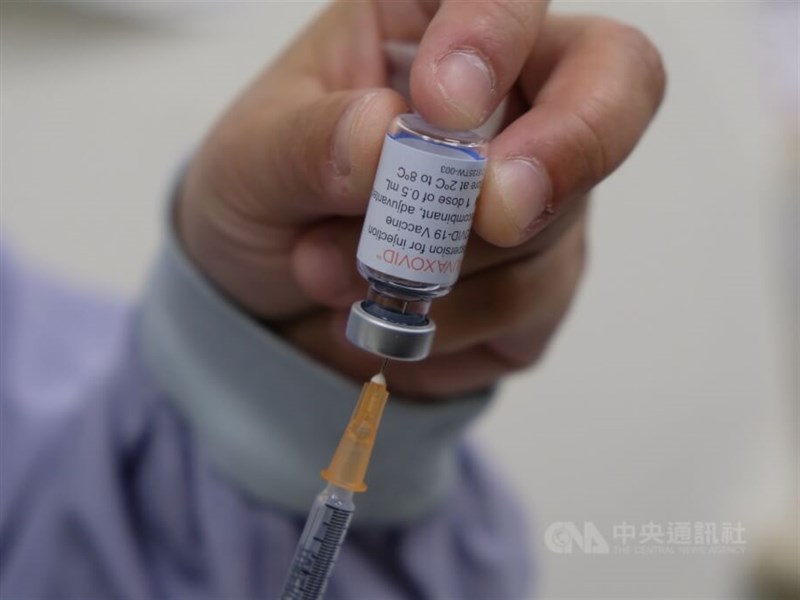CORONAVIRUS / Taiwan's CDC to publish Medigen COVID-19 research in U.S. journal
02/02/2024 09:53 PM
A COVID-19 vaccine research from Taiwan-based Medigen Vaccine Biologics Corp., which found its locally-produced vaccine was as effective as the Moderna and Pfizer BioNTech vaccines, will be featured in a United States medical publication.
(Full text of the story is now in CNA English news archive. To view the full story, you will need to be a subscribed member of the CNA archive. To subscribe, please read here.)
More in CORONAVIRUS
-
![Taiwan to shorten COVID-19 vaccine interval to 2 months for high-risk groups]() Taiwan to shorten COVID-19 vaccine interval to 2 months for high-risk groupsThe Centers for Disease Control (CDC) announced Thursday that the required interval between two COVID-19 vaccine doses for high-risk groups will be shortened from six months to two months, effective next Wednesday.06/06/2025 08:17 PM
Taiwan to shorten COVID-19 vaccine interval to 2 months for high-risk groupsThe Centers for Disease Control (CDC) announced Thursday that the required interval between two COVID-19 vaccine doses for high-risk groups will be shortened from six months to two months, effective next Wednesday.06/06/2025 08:17 PM -
![CDC confirms ample supply of COVID-19 drugs, vaccines]() CDC confirms ample supply of COVID-19 drugs, vaccinesThe Centers for Disease Control (CDC) reiterated Sunday that Taiwan has sufficient antiviral medication for COVID-19 patients and emphasized the importance of vaccination, amid concerns raised by public figures.06/01/2025 06:13 PM
CDC confirms ample supply of COVID-19 drugs, vaccinesThe Centers for Disease Control (CDC) reiterated Sunday that Taiwan has sufficient antiviral medication for COVID-19 patients and emphasized the importance of vaccination, amid concerns raised by public figures.06/01/2025 06:13 PM -
![CDC issues COVID-19 warning as Dragon Boat Festival long weekend begins]() CDC issues COVID-19 warning as Dragon Boat Festival long weekend beginsMembers of the public should not let their guard down on COVID-19 and seek medical help if they experience symptoms that indicate risk of severe infection, the Centers for Disease Control (CDC) said Friday, the first day of the Dragon Boat Festival long weekend in Taiwan.05/30/2025 05:04 PM
CDC issues COVID-19 warning as Dragon Boat Festival long weekend beginsMembers of the public should not let their guard down on COVID-19 and seek medical help if they experience symptoms that indicate risk of severe infection, the Centers for Disease Control (CDC) said Friday, the first day of the Dragon Boat Festival long weekend in Taiwan.05/30/2025 05:04 PM
Latest
-
Society
Worker dies in Innolux workplace accident in Tainan
02/22/2026 07:16 PM -
Society
Taipei's Grand Hotel warns of possible data breach after cyberattack
02/22/2026 05:53 PM -
Business
Foxconn, HCL break ground on NT$13.1 billion chip plant in India
02/22/2026 05:40 PM -
Business
Taiwan should prepare response to possible U.S. Section 301 probe: Scholar
02/22/2026 05:36 PM -
Culture
Czech author reflects on cultural erasure under authoritarian rule
02/22/2026 04:35 PM


